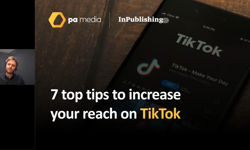
I finally did it. I finally made the break. In November, I left Twitter. But before I archived and downloaded my data, switched the account off and pressed the delete button, I had a quick look at the trending posts of the day – the day when Elon Musk walked into Twitter HQ carrying a sink – just to make a weak pun about letting his arrival ‘sink in’.
The internet once loved Steve Jobs and loved to hate Bill Gates. But it’s split on Musk; whenever we run a Musk story, we get feedback based on our perceived favouritism or antagonism to him. He’s like Marmite.
The Twitter environment has long caused me at least annoyance, often anger, sometimes offence and at worst, depression. There is no room for nuance in Twitter; everything is black and white, with us or against us, one side or the other. It’s full of vitriol and is the primary culture war battleground. The more extreme the view or the more outrageous the opinion, the further it will go. Musk’s record points to this atmosphere getting even worse under his leadership. His right-wing freedom of speech agenda means looser rules, less censorship and control. As a journalist, I’m naturally suspicious of any censorship but freedom of speech should not be without limits.
This was illustrated on the day I left, as Musk fans celebrated the more permissive future. They took to posting the N-word over and over, screaming in capital letters. A pointless, racist gesture that confirmed for me my decision to leave.
I’d been thinking about leaving for a while and the arrival of Musk was the last straw for me. He’s misused Twitter to manipulate share prices, to promote damaging and offensive conspiracy theories and to accuse a man of being a paedophile on absolutely no evidence – because he dared to turn down a publicity stunt offer of a submarine loan to rescue kids stranded in a flooded cave in Indonesia. Now he’s running the platform. His freedom of speech agenda will come up hard against government regulation, legal challenges and consumer pressure. Facebook is still trying to get it right after many years. Twitter under Musk has barely begun.
2022 has been a difficult year for the social media giants. Big tech stock prices took a beating but hardest hit was Facebook as Meta’s profits and revenues declined. That and investors getting over the Metaverse hype led to its share price losing almost a quarter of its value in October alone – and nearly three-quarters in the previous year. Meanwhile, Musk looks like he’s struggling to know where to go with Twitter’s monetisation. Selling the official account blue ticks for $8 a pop turned out to be a bad idea within days and was suspended among the chaos of fake corporate accounts and share price manipulation.
Tide turning
In September, the coroner of the inquest into the 2017 death of teenager Molly Russell wrote to social media firms and government calling for action on a range of recommendations from reviewing algorithms to separate platforms for adults and kids. He also recommended considering legislation. The NSPCC called his ruling a “big tobacco moment” for social media.
Meanwhile, the online harms bill was held up but is still on the horizon and the European Council passed the Digital Services Act that will enforce the EU’s own online safety measures in a little over a year.
Government is closing in. The tech giants have long made out that it’s impractical to police their volumes of digital content. The technology exists to do more than they do. In Germany, where it’s illegal to deny the holocaust, any such pro-Nazi posts don’t last more than seconds. And, with fast-moving developments in artificial intelligence, machine learning and other techniques, its capabilities are growing all the time. From a technology journalist’s point of view, the lack of action looks less like a problem of ability and more like one of willingness.
There’s also the conspiracy theories around human disasters entering the mainstream. These hold that attacks in which people died didn’t really happen and the victims were ‘crisis actors’. Victims have had enough and rightly they’re fighting back. Parents of children killed in the Sandy Hook shooting won their libel case in America against online conspiracist Alex Jones. Then a BBC investigation exposed the conspiracies around the Manchester Arena bombing promoted by Richard D Hall. UK libel laws are tougher than those in the US so a UK class action stands a good chance of success. The lawyers are closing in, as well as government.
As I’ve argued before in this column, the modern media landscape isn’t a level playing field. Social media is publishing media without responsibility; while traditional media has to back up and justify everything it publishes. While social media attracts growing revenues. There are signs that’s changing. I’m optimistic the field is levelling out just a little, at last.
If leaving Twitter would have been hard for me, it’s not because I’m addicted. Far from it: my generation feels guilty about not spending enough time in social media rather than too much. Looking back over more than ten years, I could see I had posted more in the early days when it was more of a novelty, but they were mostly work-related and these moved in time to the magazine’s account. There were one or two nice memories there: interviewing disco legend Giorgio Moroder for one. But recently my Tweets dwindled to a trickle of one or two a year.
My grown-up kids have never been on Twitter because “it’s for old people”. I’ve never been tempted to record every thought I have or every little thing I do but as one grows older, that does have its uses. Like when you can’t remember what it was you went upstairs for.
But if it’s for old fogies, I’m getting out. Meet you somewhere cooler. See you on LinkedIn then?
This article was first published in InPublishing magazine. If you would like to be added to the free mailing list to receive the magazine, please register here.










